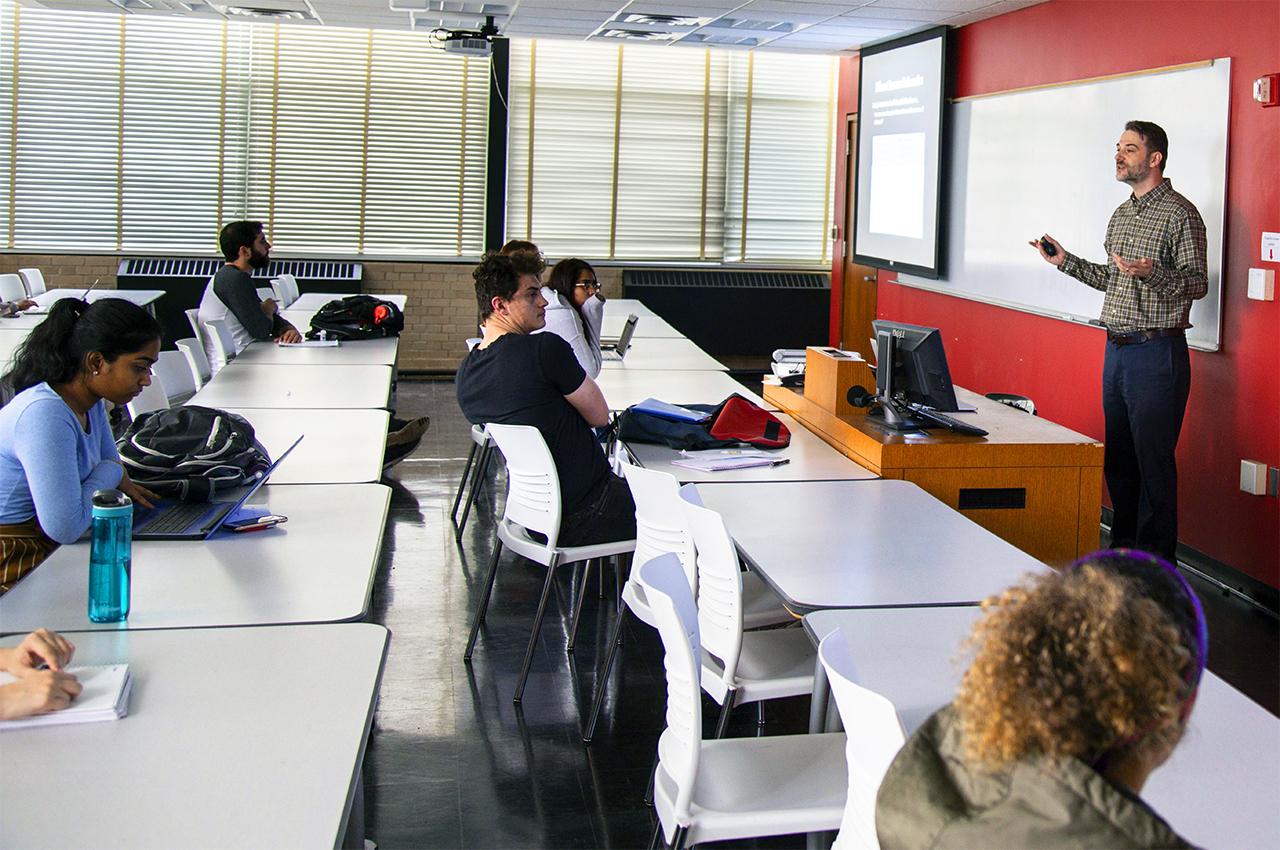Tackling Gun Violence as a Public Health Issue

TRANSCRIPT
Arlen Moller, Associate Professor of Psychology: I was watching the national dialogue around gun violence, and I was especially impressed with some of the student-led movements. And I thought, “Well, if this is an issue that a lot of young people are passionate about, then what can I do to try to contribute to the conversation and have it be as productive and informed as possible?” The title of the course is PSYC 380: Gun Violence, Psychology, and Public Health.
Alex Messina (Electrical and Computer Engineering 5th Year): The most impactful thing about the course and really what I have learned is to form my own opinions about gun violence in our country and not to take what I hear on the news at its face value. And really dig deep, do my own research, and understand the facts about violence and gun ownership and everything associated with guns in America.
Brianna Kelly (Biochemistry 4th Year): I think what surprised me most about this semester was after our first assignment where we had to interview someone that had an opposing view of ours on gun violence. And I interviewed one of my good friends who is from a small city in New York.
It’s a very rural area, and he was just telling me, “If we can’t have guns where I’m from, a lot of people will be affected by it.” Because that’s how they hunt, they get food that way. [It’s] means of protection for some people. What he told me was that guns are used as a tool from where they’re from and nothing else. So that kind of stuck with me because now I understand a little bit more about the pushback behind it.
I think that knowledge is power, and I think the more people that become educated on things like gun violence specifically, it’s something that’s so prominent today, something we hear about every day.
Like I said, it’s so easy to brush off when it doesn’t affect you directly. But it does affect us, it will affect us one day if something doesn’t change.




